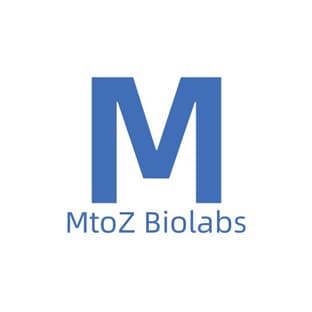Proteomics
Proteomics is the study of the entire set of proteins created by an individual organism or type of organism, e.g., the human proteome. In particular, proteomics consists of developing methods of purifying, identifying and sequencing proteins on a large scale. Proteomics takes advantage of high-throughput screening technology to rapidly search for possible protein biomarkers...
...that could be used to develop new therapies and drugs.
Lab instrumentation and equipment for proteomics include PVDF membranes; gel blotting and imaging systems; protein interaction systems; mass spectrometers; water purification, storage and distribution systems; cell culture media and containers; nucleic acid purification systems; homogenizers; particle analyzers; protein separation columns; spectrofluorometers; spectrophotometers; SPR detectors; microscopy systems, including Raman spectroscopy and TCSPC; liquid, gas, ion and HPLC chromatography systems; hydrogen generators; sample coolers; image analysis software; and disposable cuvettes.
Biochemicals and reagents for proteomics include antibodies; ELISA kits; RNA polymerase; RNA; oligonucleotides and gene fragments; protein standards; transfection reagents; Western blot workflow kits; qPCR primers; DNA, RNA and protein extraction and purification kits; mycoplasma removal agents; transcription kits; cDNA synthesis kits; reverse transcriptase; ribonuclease; stabilizers; endotoxin detection and removal systems; venom discovery arrays; fluorescent probes; neurochemicals; cell lysing kits; and mitochondrial stress tests.
Browse the product range below or simply use the Search Tool above to help find the best products.
Once you have found a product, complete a ‘Get a Quote’ form and you will get the best price!
Showing 24 of 911 results
Product A-Z
Latest promotions
Spend less time on DNA cleanup so you can do more science. The MSB Spin PCRapace is the fastest way to purify your DNA from PCR, restriction digestion, and...
New brilliant antibodies, and new lower prices!For flow cytometry reagents in general, \"bright is better.\" The violet-excitable BD Horizon™ BV421 and...
As an incentive to qualify our BSA, we are offering a 20% discount when you purchase your first 100g, 500g or 1000g of any grade of Bovine Serum Albumin....
It is not every day that you are given something for nothing. We are giving away additional spectrophotometer software.Cecil Instruments have enhanced the...
We're so sure that you'll prefer Cayman Assay kits over your present brand that we're willing to give you a free assay kit to prove it!
For the past decade scientists have extensively used ATS secondary toxin conjugates to make their own targeted toxins for in vitro use.The ability to combine...
10% Discount on 2 Rabbit Polyclonal Antibody Service. With over 20 years experience, SDIX has developed into the premier US custom antibody producer,...
Did your supplier increase the price of Fetal Bovine Serum? Did they substitute the US Origin with USDA? Well say no more! Innovative Research is still...
Bulk Cytokines with Custom Vialing.20 - 50% off cytokines, growth factors, chemokines and more...For a limited time Cell Sciences is offering substantial...
Jenway’s 73 series spectrophotometer range provides four models with a narrow spectral bandwidth of 5nm and an absorbance range of –0.3 to 2.5A,...
Are you planning to have a customised antibody made for your research?Since 2000, Everest has been producing a catalog containing thousands of affinity...
Top suppliers
United States Biological
230753 products
Carl Zeiss Microscopy
27 products
Promega Corporation
11 products
Panasonic Healthcare Company
5 products
Life Technologies
1 products
Nikon Instruments Europe
11 products
Olympus Europa Holding GmbH
3 products
Leica Microsystems, Inc.
10 products
GE Healthcare Life Sciences
2 products
Tecan Trading AG
19 products
Beckman Coulter, Inc.
1 products
AB SCIEX
3 products
BD (Becton, Dickinson and Company)
1 products
RANDOX TOXICOLOGY
5 products
Randox Food Diagnostics
6 products















